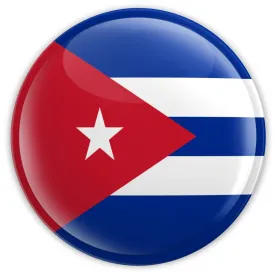Since 1995, an intellectual property exception to the current U.S. embargo on trade with Cuba allows intellectual property owners to protect their rights in Cuba.[1] Under this exception, intellectual property owners may file and prosecute applications, receive protection, renew or maintain registrations, or file opposition or infringement proceedings, and pay reasonable and customary fees due to government agencies or due to attorneys or representatives within Cuba for intellectual property protection-related activities.
Despite this intellectual property exception, many companies have not felt the need to invest the time and money in protecting intellectual property rights in Cuba, since the embargo still prohibits the actual sale of American products in Cuba. However, the Obama administration has made recent changes opening trade and travel between the United States and Cuba that may signal the normalization of relationships between the two countries. Companies that envision entering the Cuban marketplace if—or when—the embargo is lifted should consider seeking trademark registration sooner rather than later.
Cuba is a first-to-file country for trademark protection, meaning that whoever files a trademark application first is considered the legal owner of the registered mark, even if that party has never used the trademark and otherwise has no legitimate right to use the trademark. As a result, it is not unusual for bad-faith actors to intentionally file a trademark application in first-to-file countries before the true owner of a trademark, a practice commonly referred to as trademark squatting. In these countries, a trademark squatter’s intent is usually to get the true trademark owner to purchase the trademark registration. It can be difficult, costly, and time-consuming to have a bad-faith registration cancelled.
Obtaining a trademark registration now to prevent trademark squatters from hijacking valuable trademark rights is a more efficient and cost-effective strategy for companies hoping to one day expand into the Cuban marketplace. There are two ways to obtain a trademark registration in Cuba. For those companies that already have a U.S. trademark registration, the most cost effective approach is to file an International Registration through the Madrid Protocol, of which Cuba is a member country. The cost of filing an International Registration in Cuba for one class of goods/services is less than $400 as of this writing.[2] Alternatively, you can work directly with a lawyer or trademark agent in Cuba to file a trademark application through the Oficina Cubana de la Propiedad Industrial (“OCPI”), the Cuban equivalent of the U.S. Patent and Trademark Office.
Although the law provides an exception for intellectual property, historically Cuban and U.S. banks would not accept direct exchanges of money transfers. This has made it difficult for companies to register and prosecute their trademarks in Cuba because it often required payments going through third-party countries or intermediaries, thereby raising expenses. The relaxation of banking and credit restrictions announced by the Obama administration may soon make transmitting payments to trademark agents in Cuba much easier.
The Cuban trademark process is generally slow, and it may take years to obtain a registration, especially as the OCPI is flooded with new trademark applications from U.S. companies eager to do business in Cuba and get ahead of trademark squatters and their competitors. Once the registration is issued, it is valid for 10 years, at which time it can be renewed for additional periods of 10 years. [3]
It remains unclear how long it will take for the U.S. to lift the long-standing trade embargo with Cuba. When that does happen, however, those companies that already have established trademark rights in Cuba will be in the best position to benefit from the new market possibilities. Companies should consider obtaining trademark rights now to ensure they hold all the rights necessary for successful brand expansion into Cuba.
[1] 31 C.F.R. 515.528
[2] World Intellectual Property Organization, International Registration of Marks – Fee Calculation, available at http://www.wipo.int/madrid/en/fees/calculator.jsp
[3] Even with a valid trademark registration, however, trademark owners remain vulnerable to cancellation of the registration for non-use after several years. But historically such cancellations in Cuba have been rare, and the possibility of cancellation should not deter companies from protecting their intellectual property rights.




 />i
/>i

